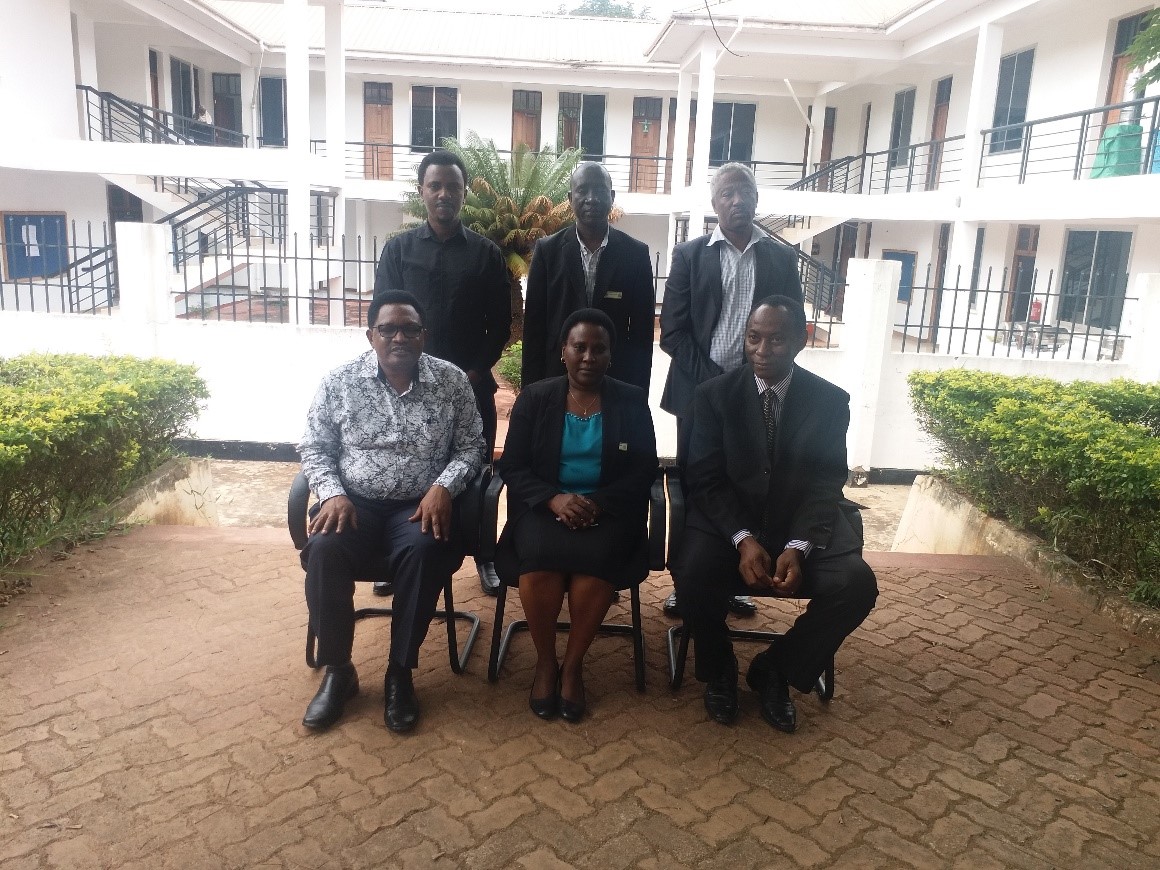On Friday 11th, June 2021, officials from the UNESCO National Commission of the United Republic of Tanzania led by the Secretary General, Prof. Hamis Malebo visited Sokoine University of Agriculture (SUA) to receive the progress of activities executed by the UNESCO Chair on Ecohydrology and Transboundary Water Management. Among other things, the team received success stories worth sharing with other higher learning institutions in the country, challenges, and future plans of the UNESCO Chair.

UNESCO NATCOM Secretary General Prof Hamis Malebo (with whitish shirt) signing the guest book at the office of the Director of Research, Postgraduate Studies, Technological Transfer and Consultancy
Background
In September 2015, Member States of the United Nations (UN) agreed that water (UN Sustainable Development Goal 6) is key ingredient for sustainable development, which cuts across several of the Sustainable Development Goals of the 2030 Agenda. This Agenda needs a sound problem-oriented scientific background dealing with hydrology and ecosystem sustainability in an integrated manner and a nature-based problem solving science i.e. Ecohydrology. This science seeks to understand the underlying water-biota interactions and then to use the ecosystem processes as management tools from molecular to river basin scales.
Ecohydrology also calls for maintaining notions of conservation for pristine/virgin ecosystems and expands efforts for regulation of Ecohydrological processes at novel ecosystems (human modified) in order to reinforce the sustainability potential (carrying capacity) and to achieve sustainability of water-related ecosystems in terms of water resources, biodiversity, ecosystem services and resilience to global change and anthropogenic stress.
In the context of the above background, the UNESCO Chair on Ecohydrology and Transboundary Water Management of Sokoine University of Agriculture was approved in 2019 so as to enhance water management in East, Central and Southern Africa using nature based solutions in solving water management problems.
Success stories
So far the UNESCO Chair has conducted one international training where 20 trainees (10 females and 10 males) were awarded certificates of participation in 2019. With regards to publications, the chair has written one book (comprising of 13 chapters) on Ecohydrology and integrated water management.

Group photo:
Front line from left to right: Prof. Hamis Malebo - UNESCO NATCOM Secretary General; Dr. Akwilina Mwanry – Coordinator of Postgraduate Studies at the Directorate of Postgraduate Studies, Research, Technology Transfer and Consultancy; and Dr. Geoffrey Karugila – Principal of Solomon Mahlangu College of Sciences and Education. Backline from left to right: Mr. Faraja Msangi - Head of Natural Sciences Programme-NATCOM; Dr. Makarius C.S. Lalika - Chairholder of the UNESCO Chair and host of the event and Mr. Joel Samuel – Deputy Executive Secretary – NATCOM.
Apart from the challenges from the COVID 19 pandemic, the UNESCO Chair has secured scholarships for two (2) students under the ERASMUS MUNDUS + mobility programme to pursue MSc in Applied Ecohydrology tenable at the University Algarve (Portugal); Antwerp (Belgium); Lubeck (Germany) and Lodz (Poland).
Future plans
The way forward includes preparation of the curriculum for MSc in Applied Ecohydrology and Watershed Management, work closely with UNESCO - NATCOM to disseminate the success stories of this UNESCO Chair, and look for funding opportunities for research, short course and MSc and PhD scholarships
Read also:
Highlights of the International Training on Ecohydrology in Tanzania, April 29th to 3rd May, 2019




